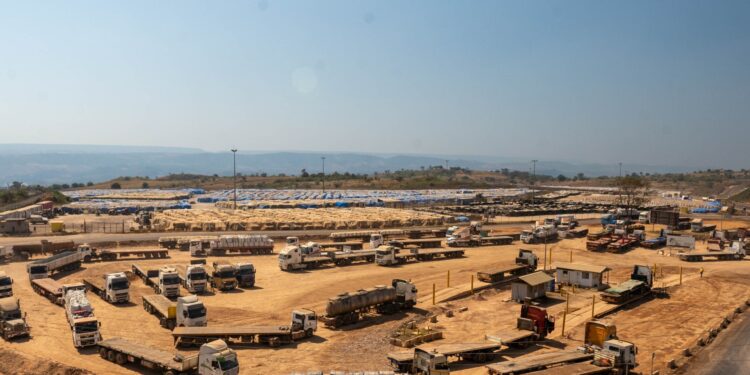5/23/2024–|Last updated: 5/23/202409:22 AM (Mecca time)
Over the past few years, the West has tried to break China’s grip on minerals critical to defense and green technologies, and despite its efforts, Chinese companies have become more dominant.
On the other hand, China is trying to expand its operations and increase supply. This leads to lower prices, and other parties cannot compete.
Accumulation of investments
The American Wall Street Journal quoted the director of the Payne Institute at the Colorado School of Mines, Morgan Bazilian, as saying: “China is not sitting idly by waiting for us to catch up… It is already increasing its huge investments in all aspects of the supply chain of important minerals.”
He added: “Take nickel, for example, which is essential for electric car batteries. Chinese processing plants spread across the Indonesian archipelago are pumping out huge quantities of the metal from new and expanding facilities, which has greatly affected the market.”
- Meanwhile, Swiss-based mining giant Glencore has suspended operations at its nickel plant in New Caledonia, a French territory, concluding that it cannot survive despite offers of financial assistance from Paris.
- British company Horizonte Minerals – whose new Brazilian mine was expected to become a major Western exporter – also said last month that investors had bailed out the country, citing increased supply in the market.
- At least 4 nickel mines in Western Australia have been closed.
- Lithium projects in the United States and Australia have been postponed or suspended after Chinese production increased at home and in sub-Saharan Africa.
- The only dedicated cobalt mine in the United States also halted operations last year, five months after local dignitaries attended its opening ceremony, and its owners say they are struggling against China’s heavy production from Indonesia. AndDemocratic Republic of Congo.
Chinese production
Last year, non-Chinese production of refined cobalt fell to its lowest level in 15 years, according to Darton Commodities, while the share of lithium mining within China or by Chinese companies abroad rose from 14% in 2018 to 35% this year. , according to Fast Markets, a commodity information provider.
Meanwhile, lithium processing within China increased from 63% in 2018 to 70%, according to the company.
China’s rapid expansion has attacked Western producers, who say China’s domestic economy cannot always absorb the influx of minerals its companies bring to the market.
Electric vehicle sales growth in China was slower than expected last year, which means there are fewer buyers for China’s metal production, which contributed to the decline in global prices.
“It’s the way China does things,” says William Adams, head of base metals research at Fast Markets. “They’ve been building more capacity, whether it’s in aluminium, cement or nickel.”
He added that Chinese companies “are all seeking market share, and the result is an oversupply.”
Western officials are also sounding the alarm; In response to a question last month about China’s dominance of nickel, Canadian Deputy Prime Minister Chrystia Freeland said that the market has been flooded, which has made companies in free markets lose economic viability.
She added: “We believe that this behavior could be intentional, and could occur for the purpose of pushing companies in our country, and among our allies, to stop working.”
Chinese companies continue to grow, thanks to years of aggressive acquisitions. Zijin Mining, a state-backed Chinese company, said it would increase lithium production by about 85 times this year from a low base, and by another five times next year.
The expected growth stems from its 2022 purchase of Western assets in an undeveloped mine in Argentina, scheduled to start pumping lithium this year.



